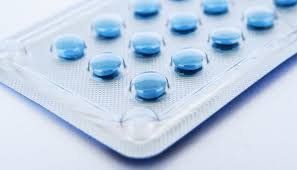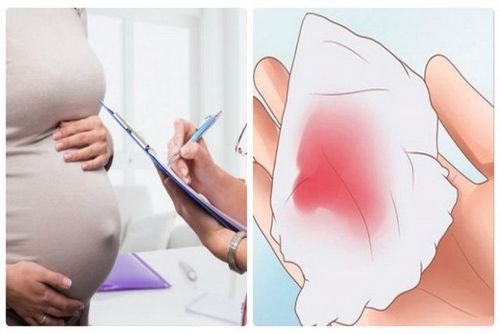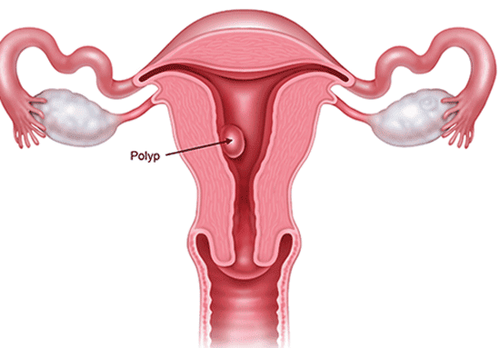This is an automatically translated article.
This article is expertly consulted by MSc Ta Quoc Ban - Obstetrician and Gynecologist, Department of Obstetrics and Gynecology - Vinmec Phu Quoc International General Hospital.Bleeding after sex is not a cause for concern and is quite common, affecting up to 9% of menstruating women. However, it can also be a warning sign of an infection and, in rare cases, a sign of cervical cancer.
1. Why bleed after sex?
The most common causes of bleeding during sex originate in the cervix or vagina.
One of the common causes is cervicitis. The acute form often arises due to infection in the postpartum period, during premature delivery, miscarriage, often accompanied by urinary tract infections, cystitis, vaginitis, endometritis... Chronic form This is largely due to poor genital hygiene, especially during menstruation,... Both types of cervicitis can cause bleeding after sex.
The second most common reason for bleeding after sex is cervical polyps. Cervical polyps are benign tumors that develop from the cervical stroma and are covered by epithelium, arising from the cervical canal, with or without legs, the size can vary from a few millimeters to a few millimeters. few centimeters, common in women who have given birth many times. Patients with cervical polyps often have no symptoms, but they can also have a lot of vaginal discharge, bleeding, and bleeding after intercourse. Most of these polyps are not cancerous and a doctor can easily remove them.
Other causes of bleeding after sex include:
Strong friction during sex or not enough lubricant Bleeding if you have just started or just finished your period Cervical or vaginal infections Ulcers genital herpes Cervical precancerous signs Cervical ectropion Pelvic organ prolapse Cancer of the cervix , vagina or uterus While many of these causes do not Treatable and harmless, sometimes vaginal bleeding after sex can be a sign of a more serious problem.

2. How do I know it's a serious sign?
If you only have occasional light bleeding after sex, this is probably a sign of nothing to worry about. But the only way to know for sure is to see a doctor for an exam and test.
If bleeding occurs right before you get your period or for a few days after it ends and then stops bleeding, you can rest assured this is not a sign of disease. You also have peace of mind if you have recently had a gynecological exam, had a Pap smear and all went well. In all other cases or if you are feeling concerned, it is best to go to a reputable facility to have it checked to rule out an infection or any other more serious problem.

3. What will the doctor check when there are signs of bleeding after sex?
Your doctor's first step will probably be asking you some questions to see if there's an obvious cause for the bleeding, like bleeding after you start taking birth control pills. Your doctor also wants to know if you have pain during sex, which could be a sign of insufficient lubrication or an infection.
Your doctor will do a physical exam and look for any source of bleeding, such as a scratch or injury to the vagina, signs of pelvic organ disease, cervical polyps, or inflammation. If your doctor finds any polyps, they can remove them at the clinic and send the specimen to a lab for testing or make an appointment later to remove them surgically.
During a Pap test, your doctor may take cells from your cervix to check for sexually transmitted diseases like chlamydia and gonorrhea, which can cause bleeding after sex, and get treated with antibiotics. The Pap test also detects abnormal, precancerous, or cancerous growths.
4. If bleeding after sex without finding the cause, will it stop?
May. A recent study found that more than half of women who experienced bleeding after sex reported that it cleared up on its own within 2 years.
5. How to prevent bleeding after sex?
You can rule out preventable causes of bleeding during sex, such as friction during intercourse or insufficient lubrication, by using lubricant before and during sex.
You can also wait until your period is over to start having sex again, if there is frequent bleeding at the end of your period then this can be a preventable cause. Removing cervical polyps or treating a cervical infection will also prevent bleeding after sex if either is the cause.
Master. Doctor Ta Quoc Ban is formerly a Lecturer in the Department of Obstetrics and Gynecology, University of Medicine and Pharmacy - Thai Nguyen University, Doctor of Obstetrics and Gynecology at Thai Nguyen Central General Hospital, Deputy Head of the Department of Obstetrics and Gynecology at the Hospital of Medical University. The doctor has full practice certificates in the field of obstetrics and gynecology such as ultrasound, laparoscopic surgery, endoscopic and electrocautery, artificial insemination (IUI)...
Please dial HOTLINE for more information or register for an appointment HERE. Download MyVinmec app to make appointments faster and to manage your bookings easily.
Reference source: Webmn.com














